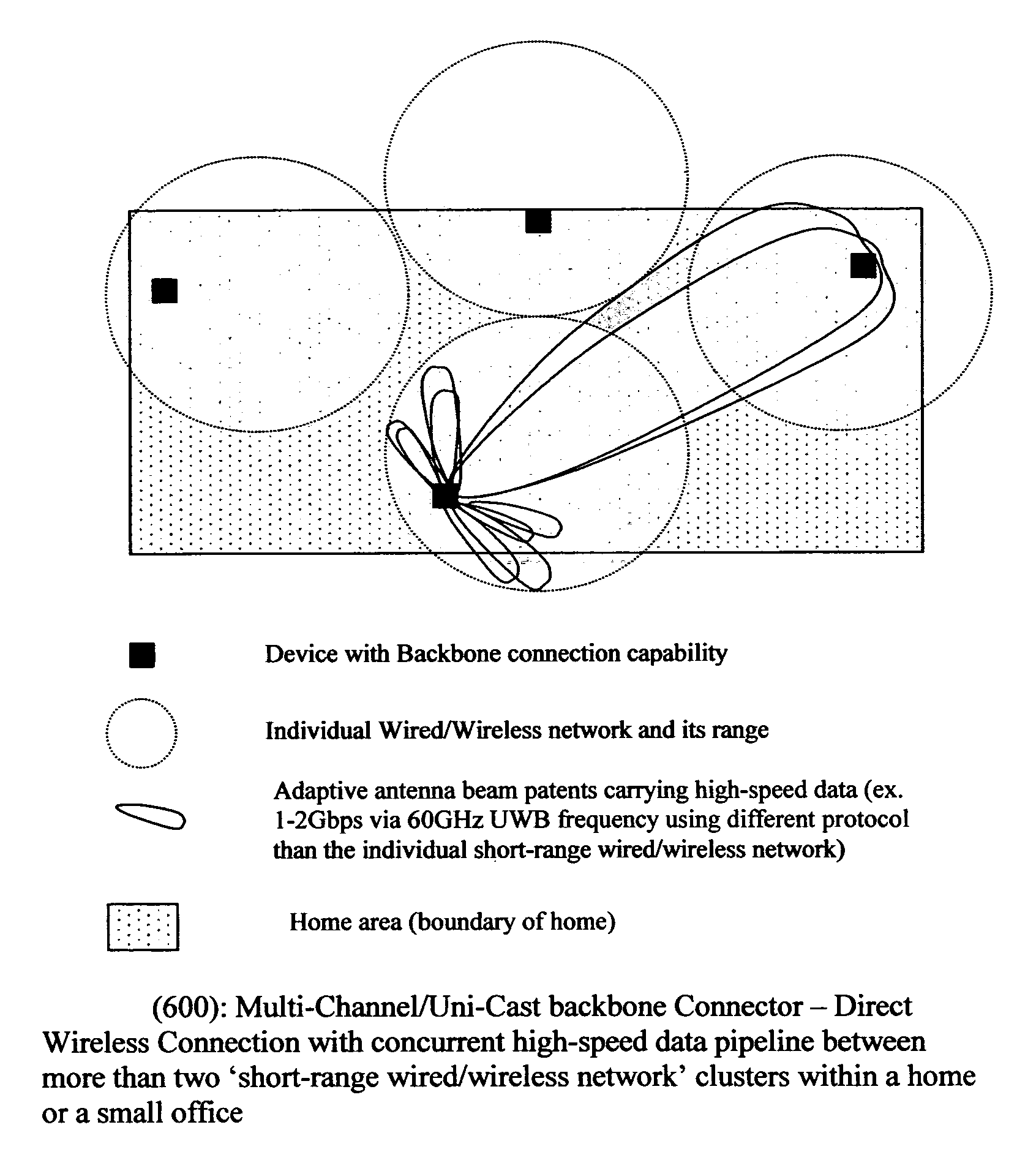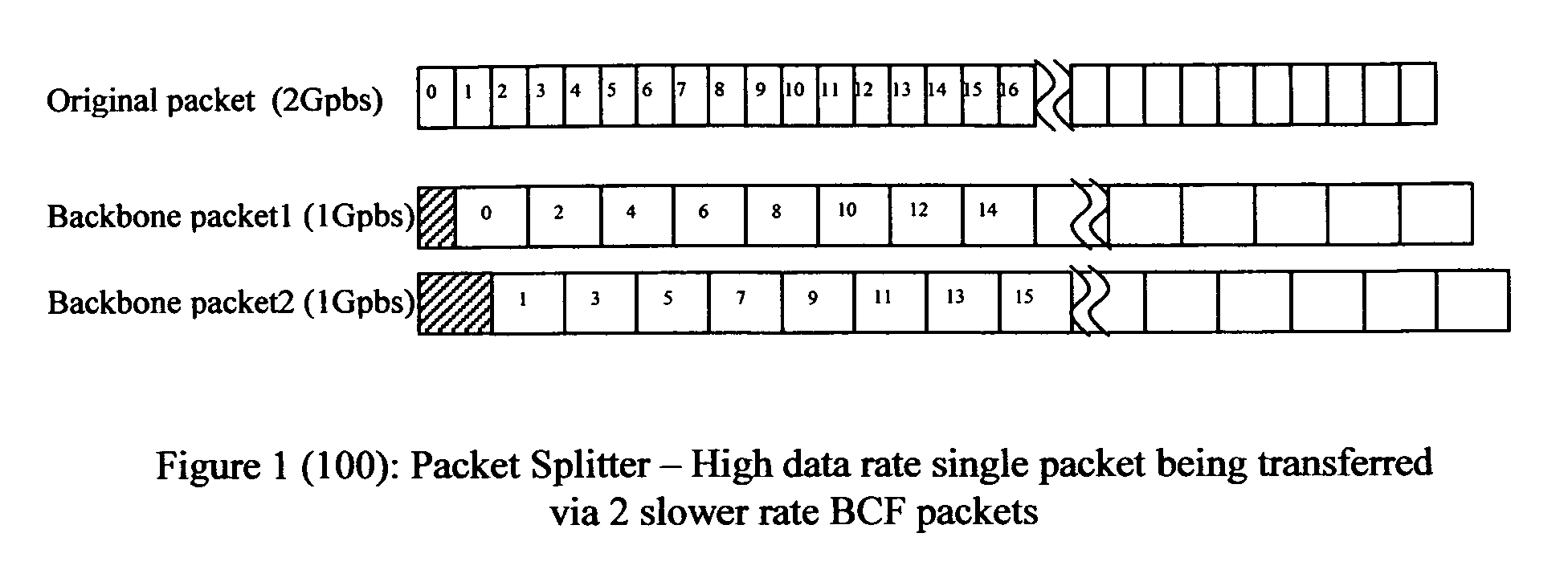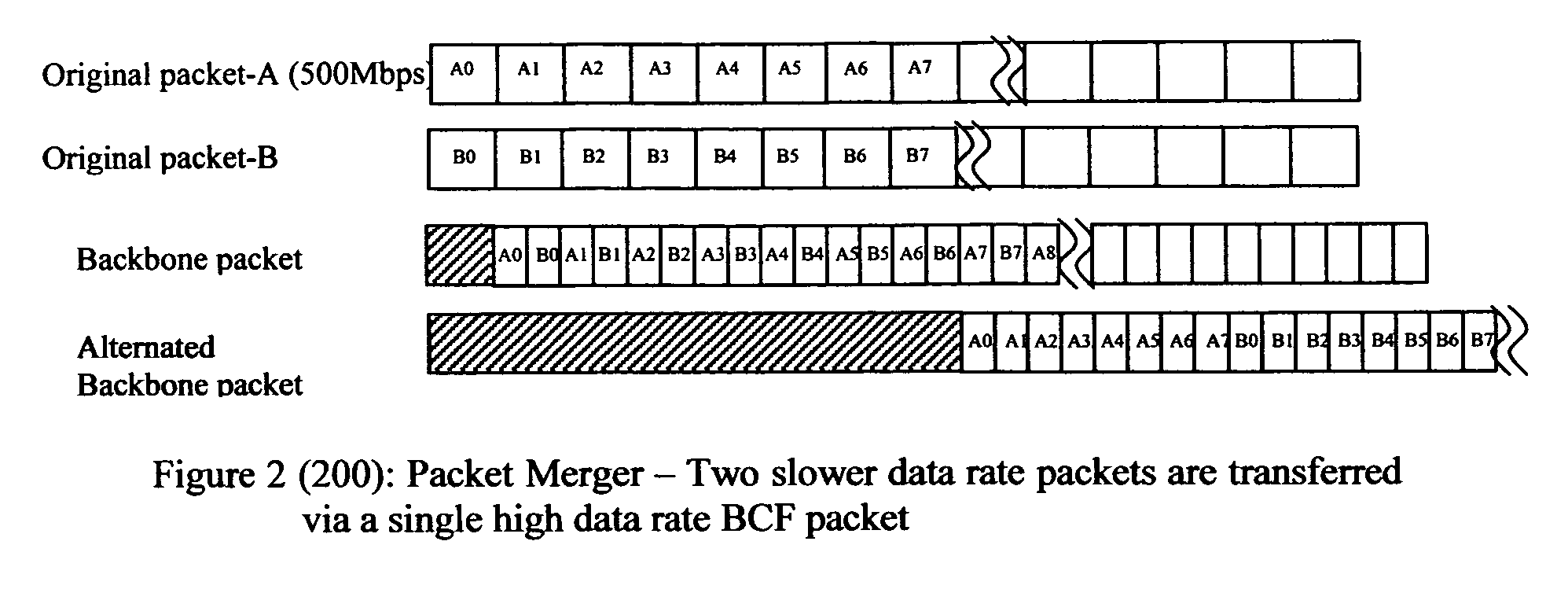Method of constructing wireless high speed backbone connection that unifies various wired/wireless network clusters by means of employing the smart/adaptive antenna technique and dynamically creating concurrent data pipelines
a high-speed backbone connection and wireless technology, applied in the field of wireless communication, can solve the problems of limiting the physical communication range of each wireless network, the proposed wireless network protocol cannot provide seamless, and the majority of home (or personal) networking protocols do not address the inter-operability of these clusters, so as to reduce interference, reduce transmit power, and increase data bandwidth
- Summary
- Abstract
- Description
- Claims
- Application Information
AI Technical Summary
Benefits of technology
Problems solved by technology
Method used
Image
Examples
case 1
[0050] Direct Wireless Connection between two ‘short-range wired / wireless network’ clusters;[0051]FIG. 4 shows the case when one ‘short-range wired / wireless network’ cluster is connected to another ‘short-range wired / wireless network’ cluster via Smart / Adaptive Antenna.
case 2
[0052] Direct Wireless Connection among more than two ‘short-range wired / wireless network’ clusters;[0053]FIG. 5 shows the case when one ‘short-range wired / wireless network’ cluster is connected to multiple ‘short-range wired / wireless network’ clusters via Smart / Adaptive Antenna. This configuration allows the one ‘short-range wired / wireless network’ cluster to send broadcast information to other ‘short-range wired / wireless network’ clusters.
case 3
[0054] Direct Wireless Connection with Concurrent High-Speed Data Pipelines between more than two ‘short-range wired / wireless network’ clusters;[0055]FIG. 6 shows an example of one ‘short-range wired / wireless network’ cluster is connected to another ‘short-range wired / wireless network’ cluster via concurrent high-speed data pipelines. This configuration allows the one ‘short-range wireless network’ cluster to transfer data via concurrent wireless channels.
[0056]The description of this application presents an example of the method to link various wired / wireless home networks. A dynamically sizable backbone high-speed data pipeline can be constructed with this method for the purpose of supporting such protocol as HDMI / HDPC, which requires up to 6 Gbps data transfer rate.
[0057]This invention requires at least one device that is capable of supporting the Backbone Connection Facilitator (BCF) function. The BCF may be implemented in any wireless device with / without wired connection. The B...
PUM
 Login to View More
Login to View More Abstract
Description
Claims
Application Information
 Login to View More
Login to View More - R&D
- Intellectual Property
- Life Sciences
- Materials
- Tech Scout
- Unparalleled Data Quality
- Higher Quality Content
- 60% Fewer Hallucinations
Browse by: Latest US Patents, China's latest patents, Technical Efficacy Thesaurus, Application Domain, Technology Topic, Popular Technical Reports.
© 2025 PatSnap. All rights reserved.Legal|Privacy policy|Modern Slavery Act Transparency Statement|Sitemap|About US| Contact US: help@patsnap.com



